
Kód: 02574957
Politics of Justifying Force
Autor Charlotte Peevers
What are the politics involved in a government justifying its use of military force abroad? What is the role of international law in that discourse? How and why is international law crucial to this process? And what role does the ... celý popis
- Jazyk:
 Angličtina
Angličtina - Vazba: Pevná
- Počet stran: 290
Nakladatelství: Oxford University Press, 2013
- Více informací o knize

Mohlo by se vám také líbit
-

From Tagus to the Ganges
831 Kč -

Perception, Conscience and Will in Ancient Philosophy
5417 Kč -

Youth and Revolution in Tunisia
3372 Kč -

PHYSICS OF THE IMPOSSIBLE: A SCIENTIFIC
352 Kč -

Foundations of Electrodynamics
400 Kč -

Nutzliches Handlungs-Worterbuch
587 Kč -

Arroz y tartana
873 Kč
Darujte tuto knihu ještě dnes
- Objednejte knihu a zvolte Zaslat jako dárek.
- Obratem obdržíte darovací poukaz na knihu, který můžete ihned předat obdarovanému.
- Knihu zašleme na adresu obdarovaného, o nic se nestaráte.
Více informací o knize Politics of Justifying Force
Nákupem získáte 463 bodů
 Anotace knihy
Anotace knihy
What are the politics involved in a government justifying its use of military force abroad? What is the role of international law in that discourse? How and why is international law crucial to this process? And what role does the media have in mediating the interaction of international law and politics? This book provides a fresh and engaging answer to these questions. It introduces different actors to the study of international law in this context, in particular highlighting the importance of institutional actors and the role of the media. It takes a theoretical approach, informed by detailed empirical analysis of key case studies, which challenges the traditional distinction between the spheres of 'the international' and 'the domestic' in global affairs, and the role of international law in the making of public policy. The book specifically critiques the idea of the 'politics of justification', which argues that deploying international legal norms to justify governmental decisions resulting in the use of force necessarily constrains government actions, and leads to fewer instances of military intervention. The politics of justification, on this account, can be seen as a progressive practice, through which international law can become embedded in domestic societies. The book investigates the actors engaged in this justification, and the institutional contexts within which legal justification is articulated, interpreted, and contested. It provides a rich, detailed account of domestic British discourse in the crucial case studies of the Suez Crisis of 1956 and the Iraq War of 2003, making extensive use of archival material, newspaper and television reporting, Parliamentary debates, polling data, personal memoirs, and the declassified material provided to several Public Inquiries, including the Chilcot Inquiry. In light of these sources, it considers the concept of international law as a language and form of communication rather than a set of abstract norms. It argues that a detailed understanding of how that language is deployed, both in private and in public, is essential to gaining a deeper understanding of the role of international law in domestic politics. This book will be illuminating reading for scholars and students the use of force in international law, historians, and media theorists.
 Parametry knihy
Parametry knihy
Zařazení knihy Knihy v angličtině Society & social sciences Politics & government Political control & freedoms
4628 Kč
- Plný název: Politics of Justifying Force
- Autor: Charlotte Peevers
- Jazyk:
 Angličtina
Angličtina - Vazba: Pevná
- Počet stran: 290
- EAN: 9780199686957
- ISBN: 0199686955
- ID: 02574957
- Nakladatelství: Oxford University Press
- Hmotnost: 594 g
- Rozměry: 239 × 156 × 22 mm
- Datum vydání: 07. November 2013
Oblíbené z jiného soudku
-

Propaganda
401 Kč -
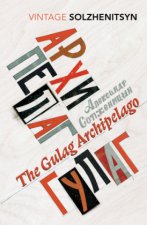
The Gulag Archipelago
386 Kč -

Manufacturing Consent
333 Kč -
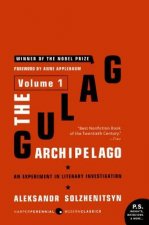
The Gulag Archipelago, 1918-1956
439 Kč -

How Propaganda Works
496 Kč -

Propaganda and the Public Mind
532 Kč -

Summary of Propaganda by Edward Bernays
160 Kč -

In Order To Live
298 Kč -

International Law: A Very Short Introduction
233 Kč -

Red Horizons
393 Kč -

Long Walk To Freedom
396 Kč -

Nothing To Envy
249 Kč -
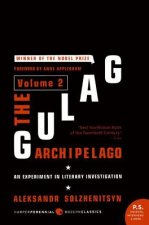
The Gulag Archipelago, 1918-1956
465 Kč -

Understanding Power
426 Kč -

Suffragettes
85 Kč -
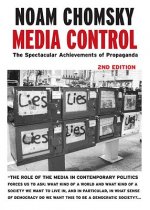
Media Control - Post-9/11 Edition
208 Kč -

On Palestine
332 Kč -

Re-enchanting The World
431 Kč -

So You Want to Talk About Race
373 Kč -

Palestine in Israeli School Books
1084 Kč -

Citizenship
320 Kč -

Autobiography of Malcolm X
472 Kč -

Anatomy of the State
294 Kč -

Inventing Human Rights
377 Kč -

Gift of Love
276 Kč -

Commissar Vanishes
910 Kč -

Gulag Archipelago
433 Kč -

On Liberty
258 Kč -

New Jim Crow
283 Kč -

Human Rights: A Very Short Introduction
249 Kč -

Political Philosophy: A Very Short Introduction
249 Kč -

Cultural Cold War
486 Kč -

The Net Delusion
283 Kč -

Creating Capabilities
568 Kč -

Half the Sky
321 Kč -

Parkland: Birth of a Movement
433 Kč -

Rights of Man
184 Kč -

I Have a Dream
394 Kč -

Beyond Chutzpah
970 Kč -

Universal Human Rights in Theory and Practice
872 Kč -

Legitimacy of International Human Rights Regimes
1099 Kč -

New World of Indigenous Resistance
449 Kč -

Fear No Evil
392 Kč -

Handbook of Tyranny
786 Kč -
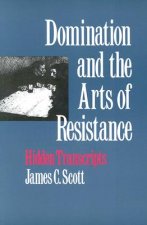
Domination and the Arts of Resistance
558 Kč -

Desert and the Sea
283 Kč -

In Harm's Way
1548 Kč -

Zinnophobia
950 Kč -

Sociology of Human Rights
733 Kč
Osobní odběr Praha, Brno a 12903 dalších
Copyright ©2008-24 nejlevnejsi-knihy.cz Všechna práva vyhrazenaSoukromíCookies



 Vrácení do měsíce
Vrácení do měsíce 571 999 099 (8-15.30h)
571 999 099 (8-15.30h)